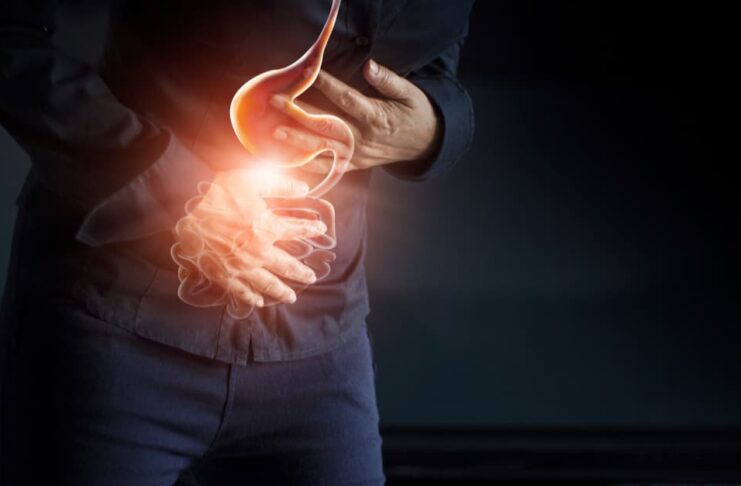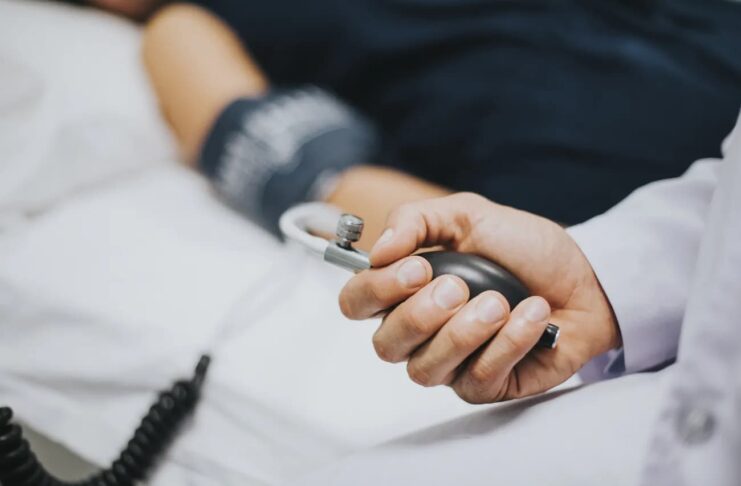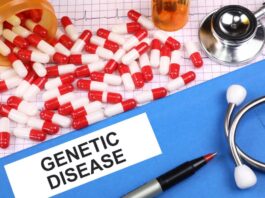Coffee is the first thing that coffee lovers/addicts think of in the morning. Coffee is both good and bad, and you should know the disadvantages of coffee so that you will not damage your health. The disadvantages of coffee are many when you drink too much of it every day as a habit. The healthy way to drink coffee is by considering the amount as well as the time of drinking coffee. So take a look at the disadvantages of drinking too much coffee below and let us know if you have a healthy or unhealthy habit.
1Anxiety

Caffeine helps increase alertness, and too much coffee simply leads to anxiety. It works by blocking the effects of adenosine which is a brain chemical that makes you feel tired. At the same time, it triggers the release of adrenaline that associates with the increased energy. The higher the doses of coffee that you consume, the more you become pronounced which leads to anxiety and nervousness.
That is not all, extremely high daily intakes of 1,000mg or more per day also causes jitteriness in most people. Not to mention it also causes rapid breathing and increases stress levels when consumed in one sitting. If you notice that you often feel nervous or jittery, it might be a good idea to reduce the amount of coffee that you drink.
2Insomnia

So caffeine’s ability to help people stay awake is one of its most prized qualities that everyone loves. However, we all know that too much caffeine can make it difficult for us to get enough restorative sleep. Studies have found that higher caffeine intake appears to increase the amount of time it takes to fall asleep. At the same time, it also decreases the total sleeping time, especially for the elderly. Some daily coffee lovers do not realize that too much caffeine is interfering with your sleep if you underestimate the amount of caffeine they take in.
The thing is that caffeine remains in your system for an average of 5 hours, but the range is from 1.5 hours to 9 hours. That depends on the individual, and the timing of caffeine ingestion also affects sleep. The advice is to cut off your caffeine consumption from the early afternoon to avoid sleeping problems. Caffeine can help you to stay awake during the day, but it may negatively impact your sleep quality and quantity.
3Digestive Issues

Many people find that a morning (large) cup of coffee helps get their bowels moving but not actually so. Coffee’s laxative effect has been attributed to the release of gastrin which is a hormone the stomach produces that speeds up the colon’s activities. However, caffeine itself also seems to stimulate bowel movements by increasing peristalsis which is the contractions that move food through your digestive tract. The best way is to reduce the coffee intake or switch to tea because it is beneficial.
4High Blood Pressure

The good thing is caffeine does not seem to increase the risk of heart disease or stroke in most people at all. The bad news is it has been shown to raise blood pressure in several studies due to its stimulatory effect on the nervous system. Elevated blood pressure is a risk factor for heart attack and stroke because it may damage arteries over time. It can do so by restricting the flow of blood to your heart and brain. Also, the impact seems to have the strongest impact on people who are not used to consuming caffeine. It is important to pay attention to the dosage and timing of caffeine especially if you already have high blood pressure.
5Rapid Heart Rate

It is one of the common things that most daily coffee consumers know, high caffeine intake can cause your heart to beat faster. That is because it makes you more energetic; therefore, the heart rate also increases as well. It may also lead to an altered heartbeat rhythm known as atrial fibrillation which normally occurs in young people who consume high doses of caffeine.
In one case study, a woman took a massive dose of caffeine powder and tablets in an attempted suicide. She developed a very rapid heart rate, kidney failure, and other serious health issues. Indeed, this effect does not seem to occur in everyone even those who are with heart problems. In fact, people with heart problems may be able to tolerate large amounts of caffeine without any adverse effects.
Regardless of mixed study results, you should notice your symptoms every time you consume coffee. If you see any changes in your heart rate or rhythm after drinking caffeinated beverages, consider decreasing your intake. Daily rapid heart rate is not healthy and safe, so always make sure to see the changes in your body when drinking coffee.
How Much Is Too Much Coffee?

Up to 400 milligrams of caffeine a day appears to be safe for most healthy adults. That equals about 4 cups of brewed coffee, or 10 cans of cola, or 2 energy shot drinks. Keep in mind that caffeine does not only exist in coffee but also in energy drinks. If you drink more than 4 cups of coffee a day or equivalent, you will experience side effects that you can notice. Those side effects are migraine headache, restlessness, frequent urination or inability to control urination, irritability, etc.
Risks Of Too Much Coffee Drinking
Apart from the main disadvantages we mentioned above, there are more risks involving coffee consumption. Those risks include as follows:
Bad Coffee Can Be Toxic
There are countless coffee brands on the market, but bad-quality coffee can have a lot of impurities in it. Bad coffee can cause sickness, headache, or bad feelings in general on a daily basis. This can happen if your coffee is made from beans that have been over-ripped or ruined. Even one ruined bean can make your cup toxic, it is just whether the level is low or high. You won’t have to worry about any of this if you only invest in high-quality coffee for your daily consumption.
Coffee Can Kill You
Just like we have mentioned above, coffee can cause rapid heart rate if consumed in a large amount. If you drink a lot of coffee in a short session, the dose can be lethal to your body. Before you reach this point, you will be vomiting most of it out due to the large amount. That goes the same with just normal water, too much water of above 10 liters in a short session can also kill you.
Coffee & Pregnancy
Never drink more than one cup of coffee a day if you are pregnant. Studies on the effect of coffee on a fetus have been controversial, but it is never safe to do so. If you drink coffee when pregnant, caffeine will also reach the fetus which means your baby is highly sensitive to caffeine. No matter if you are a heavy coffee drinker, consider reducing your coffee intake for the baby’s safety.
High Cholesterol & Coffee
Coffee beans contain cafestol and kahweol which are the two ingredients that raise LDL cholesterol levels. If you have high cholesterol, the best choice is to choose filtered coffee. Filtering the coffee traps most of the LDL which makes the coffee way safer for you to consume. In case you wonder, those two ingredients can be found in espresso, Turkish coffee, Fresh press, and Scandinavian-style cooked coffee.
Coffee & Kids
If you are a coffee lover and want your kids to experience the taste, it is somehow a bad choice. That is because kids who consume coffee have a high chance of facing an increase in bed-wetting. One survey reported that caffeine consumption by 5 to 7 years old kids may increase enuresis. That is known as bed-wetting, and none of us would want that to happen. So it is better to wait for the kids to be old enough to be able to consume coffee safely.
As we all know, everything has its own impacts and limits which everyone has to be aware of. With coffee, light to modern caffeine intake seems to provide impressive health benefits for many people. On the other hand, very high dosages may lead to side effects and long-term disadvantages as we mentioned above. You might think it is fine, you are fine because you have done it for so long. That is like collecting the risks, one day it will show its consequences which is bad. So make sure to consume coffee at a reasonable rate at the right time of the day to stay healthy.
Related Post: Disadvantages Of Skipping Breakfast




